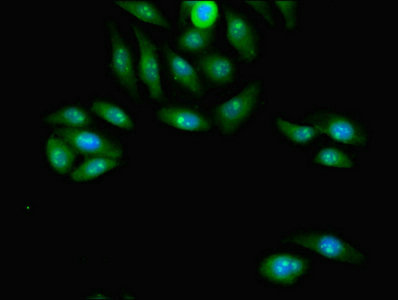Full Product Name
Rabbit anti-Homo sapiens (Human) PCGF2 Polyclonal antibody
Alternative Names
DNA binding protein Mel 18 antibody; DNA-binding protein Mel-18 antibody; Mel 18 antibody; MGC10545 antibody; PCGF 2 antibody; PCGF2 antibody; PCGF2_HUMAN antibody; Polycomb group ring finger 2 antibody; Polycomb group RING finger protein 2 antibody; RING finger protein 110 antibody; RNF110 antibody; Zinc finger protein 144 antibody; ZNF 144 antibody; ZNF144 antibody
Immunogen
Recombinant Human Polycomb group RING finger protein 2 protein (103-316AA)
Immunogen Species
Homo sapiens (Human)
Conjugate
Non-conjugated
The PCGF2 Antibody (Product code: CSB-PA017606LA01HU) is Non-conjugated. For PCGF2 Antibody with conjugates, please check the following table.
Available Conjugates
| Conjugate |
Product Code |
Product Name |
Application |
| HRP |
CSB-PA017606LB01HU |
PCGF2 Antibody, HRP conjugated |
ELISA |
| FITC |
CSB-PA017606LC01HU |
PCGF2 Antibody, FITC conjugated |
|
| Biotin |
CSB-PA017606LD01HU |
PCGF2 Antibody, Biotin conjugated |
ELISA |
Purification Method
>95%, Protein G purified
Concentration
It differs from different batches. Please contact us to confirm it.
Buffer
Preservative: 0.03% Proclin 300
Constituents: 50% Glycerol, 0.01M PBS, pH 7.4
Tested Applications
ELISA, IF
Recommended Dilution
| Application |
Recommended Dilution |
| IF |
1:50-1:200 |
Storage
Upon receipt, store at -20°C or -80°C. Avoid repeated freeze.
Lead Time
Basically, we can dispatch the products out in 1-3 working days after receiving your orders. Delivery time maybe differs from different purchasing way or location, please kindly consult your local distributors for specific delivery time.
Usage
For Research Use Only. Not for use in diagnostic or therapeutic procedures.







